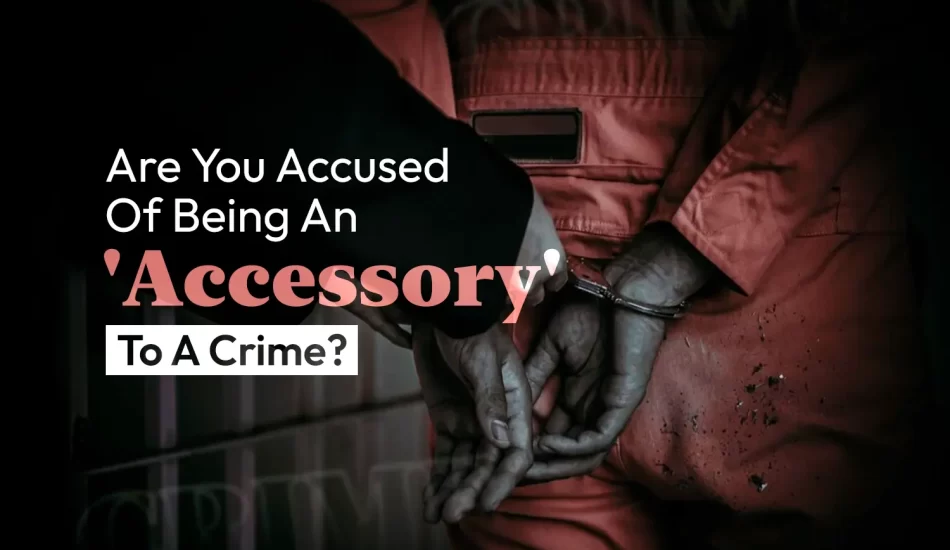Are You Accused of Being an ‘Accessory’ to a Crime?

When we think of someone facing criminal charges, we often picture someone who actually committed a crime. But did you know you can face criminal prosecution even if you did not directly commit the crime but helped the person after they committed the crime?
This type of involvement labels you as an “accessory” to a crime. The penalties of being an accessory to a crime can be life-changing. This is why it is essential to understand what it means and have an experienced Miami criminal defense attorney on your side if you face such charges.
How can you be considered an accessory?
Being charged as an accessory does not necessarily mean you were there when the crime happened. You can be considered an accessory by simply being involved in helping the perpetrator after they committed the crime. In Florida, this offense is called “accessory after the fact”.
Consider an example where a person helps someone clean up the crime scene after a fatal shooting or helps a friend flee a location where they robbed a bank but were not involved in the actual bank robbery. Although this person was not present at the time the crime was committed, their involvement in the cover-up can lead to them being charged as an accessory under F.S. § 777.03.
What’s the difference between an accessory and an accomplice?
While an accessory and an accomplice might seem similar, there is a notable difference between the two. An accomplice is someone who actively participates in it in some way. For example, someone who is a lookout or getaway driver in a robbery. On the other hand, an accessory helps conceal the crime or concealed the perpetrator’s involvement in the crime but has no role in the actual crime.
What are the penalties for being an accessory to a crime in Florida?
If you are found to be an accessory to a crime in Florida, the type of punishment you could face depends largely on how severe the original offense was. Let’s break down what this could potentially look like:
- For a capital offense, accessories face first-degree felony charges, with penalties including up to 30 years in prison.
- In cases involving a life felony or a first-degree felony, you could be looking at a second-degree felony charge as an accessory, which carries a penalty of up to 15 years in jail.
- If the main crime was of the second-degree or a high-level third-degree felony, the accessory could be charged with a third-degree felony. This can mean up to 5 years in prison.
- Lastly, aiding in a less severe third-degree felony might have you facing a first-degree misdemeanor charge, which carries a maximum penalty of a year in county jail.
Contact The Kirlew Law Firm!
If you are accused of being an accessory to a crime in Florida, getting legal assistance as soon as possible is crucial. By working with a trustworthy law firm in Miami, like the Kirlew Law Firm, you will have a team well-versed in the complexities of the Florida judicial system working tirelessly to protect your rights. Contact the Kirlew Law Firm for a free phone consultation today!

